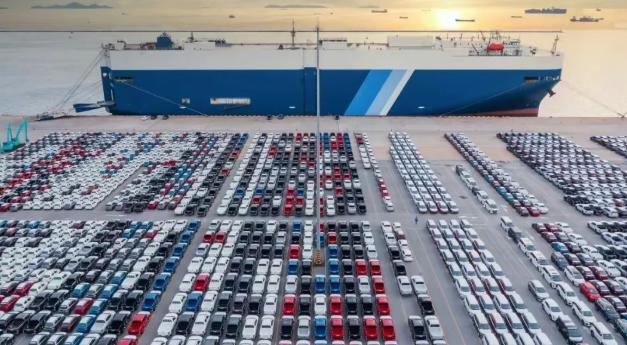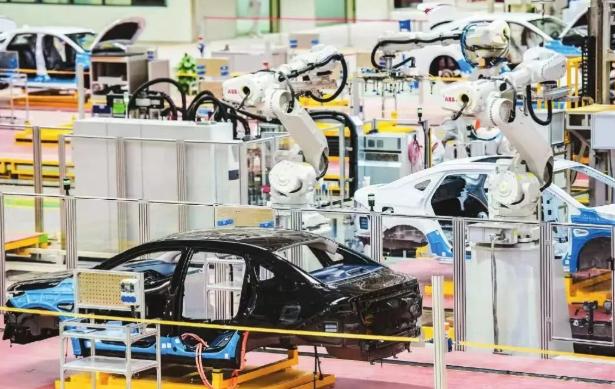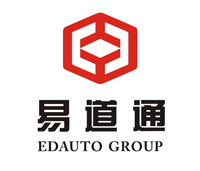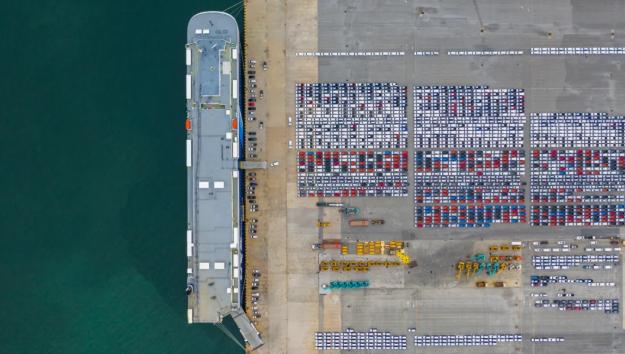China’s car imports surge
Recent statistics from the Korea Trade Association show significant changes in the Korean automotive landscape.
From January to October 2024, South Korea imported cars from China worth US$1.727 billion, a year-on-year increase of 64%. This increase has exceeded the total imports for the whole of 2023, which was US$1.249 billion. The continued growth of Chinese automakers, especially BYD and Geely, is an important factor driving this trend. Not only are these companies expanding market share in South Korea, they are also supported by multinational automakers such as Tesla and Volvo, which are ramping up production in China for export to the Korean market.

The trend of reverse exports is also worth noting, with Hyundai and Kia’s joint ventures in China exporting complete vehicles, parts and engine components back to South Korea. This dynamic reflects a broader strategy by multinational companies to exploit China’s strong supply chains and cost advantages. As a result, China has become South Korea’s third largest source of imported cars, with its market share growing from less than 2% in 2019 to about 15% today. The change highlights the growing competitiveness of Chinese cars in a market traditionally dominated by local brands.
Electric Vehicles: New Frontier
In this context, the field of electric vehicles (EV) deserves particular attention. China has become South Korea’s largest supplier of electric vehicles, with imports reaching US$1.29 billion from January to July 2024, a year-on-year increase of 13.5%. It is worth noting that the value of pure electric vehicles imported from China surged 848% to US$848 million, accounting for 65.8% of South Korea’s total electric vehicle imports. This trend is indicative of a broader global shift towards sustainable transportation solutions, in line with growing consumer demand for environmentally friendly vehicles.
Chinese automakers are leveraging their strengths in electrification and smart car technology to break into the South Korean market. However, they face significant challenges, including stiff competition from well-known local brands. In the first half of 2024, Hyundai and Kia accounted for 78% of the market share in South Korea, highlighting the competitive pressure that Chinese companies must deal with. Nonetheless, Geely Automobile’s collaboration with Groupe Renault, which recently launched the Renault Grand Koleos, illustrates the potential of successful partnerships to enhance product offerings and market share.

Sustainable future of cooperation
The ongoing transformation of the automotive industry is not just a matter of market dynamics, it represents a broader commitment to sustainable development and international cooperation. Electric vehicles emit almost no pollutants during use, and their environmental performance is consistent with global efforts to reduce air pollution and greenhouse gas emissions. In addition, the energy efficiency of electric vehicles exceeds that of traditional internal combustion engine vehicles, providing a way to reduce operating costs and improve energy utilization.
The automotive industry is about to undergo major changes as demand for smart cars continues to grow, driven by technological advances and consumer preferences. Smart cars equipped with advanced driver assistance systems, connected car technologies, and autonomous driving capabilities are becoming increasingly common. These innovations not only improve driving safety and convenience, but also enhance the overall user experience through personalized services provided by big data and artificial intelligence.
The role of policy support cannot be ignored, as many countries and regions are implementing subsidies and incentives to promote the development and popularization of electric vehicles and smart vehicles. This supportive environment fosters innovation and collaboration among automakers, paving the way for a greener future. Collaborations between Chinese and multinational automakers exemplify this trend, as they work together to share resources, technology and market insights.
All in all, the rise of Chinese automakers in South Korea marks a transformative moment for the global auto industry. The passion and innovation shown by these companies, coupled with the determination of multinational companies, create fertile ground for collaboration and sustainable development. As the world moves toward a greener and smarter transportation landscape, collaboration between countries and industries is critical to shaping a better future for humanity. The automotive industry is at the forefront of this change, demonstrating the potential for progress through innovation, partnerships and a shared commitment to environmental stewardship.
Post time: Feb-10-2025



